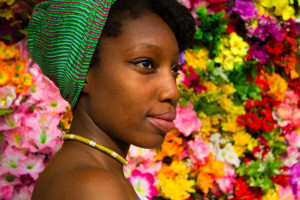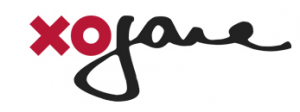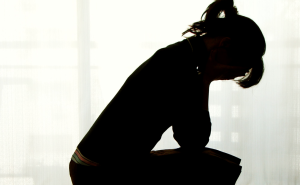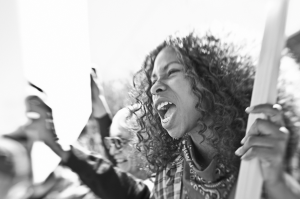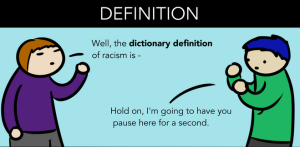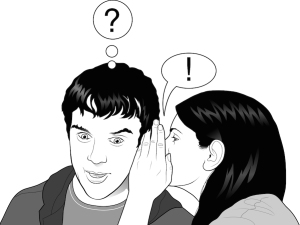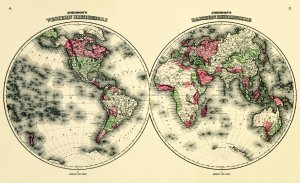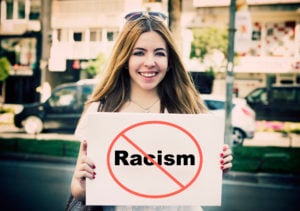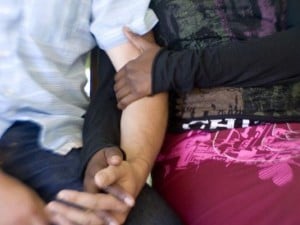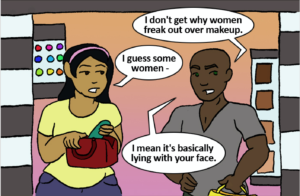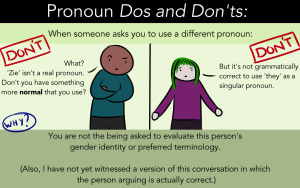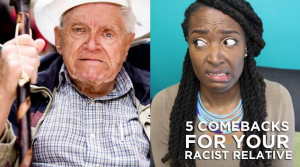Originally published on xoJane and republished here with their permission.
Recently, I began interning at a progressive, eloquent but totally chill organization that many of you know and love (but I like keeping secrets, so…).
I found that the work environment is super relaxed and friendly, filled with clever, quirky people who enjoy obscure ice cream sandwich flavors, can openly discuss issues of race/gender/sexuality/etc in society and jump for joy when there are Oreos in the snack drawer. Life is fun, and so is my new office.
Besides everyone being warm, interesting and extremely smart, I’ve noticed that they don’t necessarily dress up. I mean, they do dress well, but they don’t all follow the traditional rubric of “professional attire” – there aren’t many blazers, pencil skirts and slacks-wearers.
In fact, my comrades are typically dressed in jeans, mini-dresses, colorful tights, blouses and printed button downs, with accents of wedges, heels, boots and sneakers. I was grateful to learn this, because my closet’s limited selection of “work clothes” could only carry me so far.
A significant part of my fashion aesthetic involves wearing headwraps, and during my first month of interning, I itched to wear one – not only for fashion purposes, but also for practical ones. Here are three common reasons why I, and other natural hair girls, enjoy wearing headwraps:
1) Sometimes we just don’t want to style our hair everyday (weather and mood included).
2) It’s dope. Fashionably speaking, it can amp up any outfit.
3) Cultural and self expression. <3
Practical reasons aside, I stopped myself before bringing a colorful cloth to my head, wrapping both sides into an intricate contraption and stepping into my office.
Can I wear a headwrap to work? I asked myself, as I felt my hair itching for a break from being done every morning.
There’s reasons for my hesitation. For one, my overprotective and quite Americanized African dad raised an eyebrow and pestered me when he got the slightest suggestion of me wearing a wrap to work.
But mainly, I wasn’t sure of myself or what I can do and not do in relation to my new professional setting.
Can you blame me?
As black women, we face a lot of heat over our looks, from our hair to our skin color to our body shape.
When the Big Natural Hair Movement made waves about 6 years ago (not to say women weren’t going natural/were natural before this, but it definitely became prominent recently), causing more of us to return to our roots, we got heat from some of our peers questioning whether or not it is suitable for the workplace.
It was even questionable in the military. Obviously, women of color can’t defend our nation while having kinky twists and cornrows on their heads. Go figure.
Thankfully, natural hair is more socially and culturally embraced now, which is beautiful, empowering and inspiring. The hair thing was a tough thing to conquer – and still is – and it’s great that we are strengthening each other and have some support from our curious non-black peers.
But what about wearing headwraps? This is another part of black culture that most women (and some men) hold very close. Is it acceptable for us to wear that too, America, without people judging us or disliking it or deeming us “non-professional”?
People of color often have more to prove in social and professional settings than our white peers. There is a more meticulous eye kept on us, closer attention paid to our mistakes and mishaps, and a greater need for us to make imprints in the professional world, in order to “validate” our importance.
It shouldn’t be this way, but unfortunately, it is.
So I wasn’t sure if wearing a headwrap to the office was a good idea. Although it is such a great part of my personal style, I didn’t know if it could swiftly translate into professional style.
I asked myself these questions because I am black. Because I’ve been told all my life that I have to make sure I make the right impression when I step out into the world.
I wanted more opinions on this subject, so I asked some friends and loved ones about it.
Firstly, my mom: “Yes, you can wear headwraps to work.” As simple as that. No lecture or disapproval or anything.
Then my friend Nicole: “It depends on the work environment,” she replied.
“Okay, well what if people wear jeans and sleeveless blouses to work? And some have nose piercings?” I challenged.
“Then I’d lean towards yes, but who knows? Rules are always different for us.”
(“Us” means black people.)
I also asked my girl Jackie. She considers her previous job to be corporate: “I always wore my scarf!” she enthusiastically replied. Her confident answer gave me a boost.
Naturally (no pun intended), this wouldn’t be a legit survey if I hadn’t asked Google. There’s some forums about the topic, with conflicting ideas within the black community.
Some commenters said that wearing headwraps in the workplace isn’t a big deal, while others wondered if it sent the wrong impression. One writer in particular said that wearing headwraps in the workplace could probably lead people to wear beanies and hats as well.
Our physical appearance provides people with an early sense of who we are, and in turn, can cause them to prejudge us, or worse – determine how we should be treated.
That is one of the first things I noticed when I started wearing headwraps in general. People thought about how to treat me. They wondered if me wearing a headwrap meant I was straight from Africa.
(Once, while waiting in line to ring up my items at a supermarket, the woman in front of me turned to me, looked at my headwrap, smiled, and asked, “Are you from Uganda, or some other exotic place?”) Some wondered why I was covering or “hiding” my hair. Others wondered what wearing a headwrap means.
The headwrap has a long, complicated history, with several cultural connotations wrapped up in it. “Headrags” were used by slaves to protect their hair while working and to prevent the spread of lice.
However, the “headrag” mostly served as a badge of enslavement, and a way for white slave masters to further dominate slaves. According to Helen Bradley Griebel’s study, The African American Headwrap: Unwinding the Symbols:
The earliest, South Carolina’s Negro Act of 1735, “specifically set a standard of dress for the enslaved and free African Americans” (ibid. 132). In 1740 amendments, South Carolina’s slave code further elaborated the dress regulations (Genovese, 1974:359). In 1786, while Louisiana was a Spanish colony, the governor enacted a dress code which forbade: “females of color … to wear plumes or jewelry”; this law specifically required “their hair bound in a kerchief” (Crete, 1981: 80-81; also Gayarre, 1885: 178-179 and Wares, 1981:135).
But for most African women, wearing headwraps evokes a sense of fashion, pride and beauty. Personally speaking, I have been surrounded by women wearing headwraps all my life. I always saw it as a way for my mother, aunties, grandmother and other Ghanaian women to physically transform into elegant queens whenever they attended a wedding, funeral, party or other African function.
I really like the way this post summarizes the plight of the headwrap:
For the African woman, the headwrap represents far more than a piece of fabric wound around the head : it holds a distinctive position in the history for its longevity and potent significations as it has endured the travail of slavery. Originated in sub-Saharan Africa, the African woman’s headwrap acquired a paradoxical meaning: During slavery, White overlords imposed its wear as a badge of enslavement. Later, it evolved into the stereotype that whites held of the Black servant. The enslaved and their descendants, however, have regarded the headwrap as a helmet of courage, a uniform of communal identity standing for absolute resistance to loss of self-definition.
Right now, wearing headwraps is a way for us to reclaim, revive and reinterpret such a creative and cool tradition that has been defined or degraded by others before us.
I like wearing headwraps. I LOVE wearing headwraps.
I know what my headwrap says to people. I wrote the sentence. It says that I am a proud African/black human being that likes prints and chooses to cover my hair that day.
People can misinterpret this statement, or feel offended by it, or read it again and again with admiration and appreciation.
The best conversation I had on this topic was with my good friend Chanel. We hit some ground on the topic. Our conclusion: it comes down to culture and stereotypes. Of course!
“When I see a black woman with a headwrap, I don’t think much about it, you know?” she says.
Maybe we all shouldn’t think so much about another’s choice of dress. Maybe we should focus more on what that person’s style has to say about their creativity and personal story, and not assume their clothes are a direct determination of who they are.
After all, we wear clothes – they don’t wear us.
The day I finally started wearing headwraps into the office, I was relieved to find that it wasn’t as big as a deal as my mind made it to be.
No one said anything. No one’s eyes lingered on my head. No one asked me a question or smiled awkwardly or treated me differently.
I also (pleasantly) found that another girl in the office (whose family is actually straight from Uganda) wore her headwrap that day as well. That’s right girl.
Yet, this is all within my office. Do the doormen treat me differently? Sometimes.
Do I get uncomfortable stares in the elevator while I travel to my office? Of course.
Will I ever stop wearing headwraps? Hell naw.
Do I think it’s okay in the office? Well, judging by the compliments I get, I’d say yes.
[do_widget id=’text-101′]
Search our 3000+ articles!
Read our articles about:
Our online racial justice training
Used by hundreds of universities, non-profits, and businesses.
Click to learn more
Most Read Articles
- « Previous
- 1
- …
- 30
- 31
- 32


